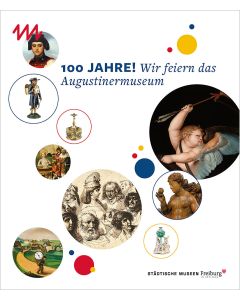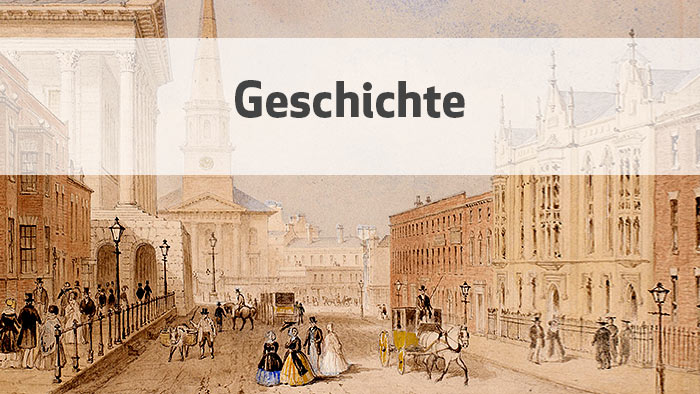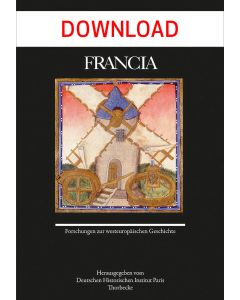The store will not work correctly in the case when cookies are disabled.
JavaScript scheint in Ihrem Browser deaktiviert zu sein.
Um unsere Website in bester Weise zu erfahren, aktivieren Sie Javascript in Ihrem Browser.
Thorbecke
Neuerscheinung
Erwin Frauenknecht
Peter Rückert
Katalog zur Ausstellung
Neuerscheinung
Maximilian Kraemer
Bauten und Entwürfe 1957–1970 Band 22
Neuerscheinung
Christiane Kuller
Joachim Scholtyseck
Edgar Wolfrum
Beiträge zu Machtverhältnissen und Verwaltungskultur in den badischen und württembergischen Landesministerien in der Zeit des Nationalsozialismus Band 234
Neuerscheinung
Hermann Grees
Andre Gutmann
Band 65
Neuerscheinung
Sandra Kriszt
Romina Schiavone
Die Baugeschichte der Stiftskirche und die karolingerzeitliche Bauskulptur der Reichenau Band 21
Bestseller
Kurt Andermann
Gerrit Jasper Schenk
Regionale und überregionale Aspekte einer sozialen Erhebung Band 14
Bestseller
Elena Klink
Leichte vegetarische Rezepte für drinnen und draußen
Bestseller
Eileen Pesarini
Schnelle glutenfreie Rezepte für jeden Tag
Bestseller
Rezepte & Zitate
Neuerscheinung
Die schönsten Gedichte und Geschichten
Bestseller
Wissenswertes & Kurioses – 55 erstaunliche Fakten
Bestseller
Gerhard Fouquet
Matthias Meinhardt
Sven Rabeler
Rainer C. Schwinges
Bildung und Professionalisierung zwischen Stadt und Hof (1470–1540/50) Band 9
Neuerscheinung
Frank Brunecker
Michael Wettengel
Gudrun Litz
Zeitschrift für Geschichte, Kunst und Kultur Band 63
Neuerscheinung
Urte Krass
Miguel Metelo de Seixas
Perspectives and Challenges of a Connective Image Form Band 5
Neuerscheinung
Christine Reinle
Band 96
Neuerscheinung
Die besten Seiten für traumhafte Ferien
Neuerscheinung
Städtische Museen Freiburg
Neuerscheinung
Maximilian Diesenberger
Die Ungarn und die Desintegration des Frankenreichs um 900 Band 6
Neuerscheinung
Roland Wolf
Die Hungerkrise der Nachkriegszeit in Württemberg-Hohenzollern 1945–1948 Band 235
Neuerscheinung
Geschichtsverein der Diözese Rottenburg-Stuttgart
Aufbruch zur Wiedervereinigung. Die ökumenische Bewegung im Katholizismus der 1950er-Jahre Band 41
Neuerscheinung
Landesamt für Denkmalpflege im Regierungspräsidium Stuttgart
Landkreis Rottweil
Neuerscheinung
Wolfgang Zimmermann
170. Jahrgang 2022
 Neuerscheinung
Neuerscheinung Neuerscheinung
Neuerscheinung Neuerscheinung
Neuerscheinung Neuerscheinung
Neuerscheinung Neuerscheinung
Neuerscheinung Bestseller
Bestseller Bestseller
Bestseller Bestseller
Bestseller Bestseller
Bestseller Neuerscheinung
Neuerscheinung Bestseller
Bestseller Bestseller
Bestseller Neuerscheinung
Neuerscheinung Neuerscheinung
Neuerscheinung Neuerscheinung
Neuerscheinung Neuerscheinung
Neuerscheinung Neuerscheinung
Neuerscheinung Neuerscheinung
Neuerscheinung Neuerscheinung
Neuerscheinung Neuerscheinung
Neuerscheinung Neuerscheinung
Neuerscheinung




